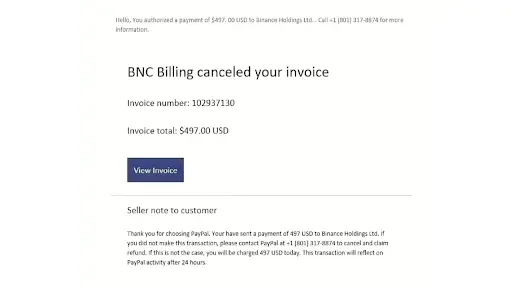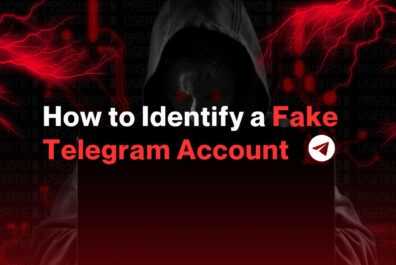Getting your Money Back from PayPal Scams
PayPal often stands out as a popular choice for payment apps. Known for its focus on safety and powerful encryption, PayPal is seen as a reliable platform. However, there has been a notable increase in the prevalence of an ongoing phishing scam tactics, posing a serious threat to PayPal users. This scam aims to trick unsuspecting users into surrendering not only a large amount of money but also their personal information.
Recovering Money From a Paypal Scam

PayPal offers protection against dishonest transactions and scams through its Buyer Protection program. If you’re tricked or receive an item very different from what was described, you can file a dispute via PayPal’s Resolution Centre within a timeframe, typically 180 days of the transaction. PayPal will investigate, and if they decide in your favour, you may be eligible for a refund.
However, dispute outcomes vary based on factors including transaction specifics and evidence provided. It’s crucial to document the issue thoroughly and provide all relevant information to support your claim. Also, note that PayPal’s Buyer Protection may not cover certain transactions or scenarios, so reviewing their policies and terms of service is advisable.
How do I Recover Money From a Scam on PayPal?
If you’ve been scammed on PayPal, act quickly. Log into your account, go to the Help Centre, and report the problem. Provide details about the fake transaction, including dates, amounts, and any communication with the scammer. Cooperate fully with PayPal’s investigation, providing evidence promptly. If PayPal’s problem-solving process doesn’t work, consider legal action. Acting fast is crucial to getting back money you’ve lost.
- Contact PayPal Immediately
- Time is of the essence when dealing with scams. As soon as you realise you’ve been scammed, log in to your PayPal account and go to the Resolution Centre.
- Use the “Report a Problem” feature to initiate contact with PayPal. Provide specific details about the transaction, including the date, amount, and any communication you had with the scammer.
- PayPal’s customer support may also be able to provide guidance, so consider reaching out to them through their support channels.
- File a Dispute
- Within the Resolution Centre, select the transaction related to the scam and click on “Report a Problem” or “File a Dispute.”
- Choose the reason for the dispute, such as “Unauthorised Transaction” or “Item Not Received,” depending on the nature of the scam.
- Provide a detailed description of why you believe the transaction was fraudulent. Include any evidence you have, such as screenshots of conversations with the scammer or proof of payment.
- Cooperate with PayPal
- After filing the dispute, PayPal will review the case and may request additional information from you to support your claim.
- Be responsive to any communication from PayPal and provide any requested documentation promptly. This could include screenshots, receipts, or any other evidence that strengthens your case.
- Be Patient
- Resolving disputes can take time, as PayPal conducts a thorough investigation into the matter.
- Check the Resolution Centre regularly for updates on your dispute. PayPal may communicate with you through email as well, so be sure to monitor your inbox.
What are Common PayPal Scams?
Common types of PayPal scams include phishing attempts, where fake emails or messages mimic PayPal to trick users into giving personal information; invoice and money request scams, where scammers send fake invoices or payment requests with urgent messages to get money or sensitive details; advance fee schemes, which promise big sums but need victims to pay small fees upfront, only to disappear after receiving payments, overpayment scams, where scammers pay too much for items bought through PayPal and ask victims to give back the extra money, often using stolen payment methods and shipping scams, which involve different tricks like using fake shipping accounts or labels to get things or money. Recognising these scams is important for users to protect themselves from bad activities on PayPal.
Phishing Scams
These scams involve fake emails or messages that appear to be from PayPal, asking you to provide personal or financial information. The goal is to steal your identity or login credentials. To avoid this scam, always verify the sender’s email address and avoid clicking on suspicious links or providing sensitive information.
Invoice and Money Request Scams
Scammers may send fake invoices or money requests through PayPal for products or services you never ordered. They may also include alarming messages urging you to call a fake customer service number. Avoid paying any suspicious invoices and refrain from calling numbers provided in such messages.
Advance Fee Fraud
In this scam, scammers promise large sums of money but require you to pay a smaller amount upfront for taxes, legal documents, or other reasons. Once you send the money, they disappear without fulfilling their promise. Never wire money to someone you don’t know, especially if they promise unrealistic returns.
Overpayment Scam
This scam involves a buyer overpaying for an item purchased through PayPal and then asking you to wire them the difference. The overpayment is often made with a stolen payment method, and you may end up losing both the extra money you wired and the product you shipped. Be cautious of any requests to wire money back to a buyer.
Shipping Scams
These scams include different types of tactics such as using fake shipping accounts, prepaid shipping labels, or rerouting packages. Scammers may ask you to use their shipping account, provide prepaid labels, or reroute packages to a different address, often leading to loss of both the shipped items and shipping costs. Always ship to the address listed on the PayPal transaction details page and avoid using shipping labels provided by customers.
Man Lost $50,000 To Scammers After Fake Email From From PayPal Impersonators
Local Man Loses $50K from PayPal Scam Email
In this story, Jeff Feeney fell for scammers who pretended to be PayPal in a fake email. They said there was a problem with a transaction and gave him a number to call. Feeney, not realising it was a trick, called them and let them control his computer, thinking they were giving him money back. The scammers messed with Feeney’s Fifth Third Bank account, pretending to put $50,000 in it. They pushed him to give the money back, saying it was a mistake. Believing them, Feeney sent the money to them in Cambodia, losing a significant amount of money to this paypal scam.
Feeney’s experience is a clear reminder of the dangers present in the digital world. The scam not only affected his hard-earned money but also deeply affected his feelings of safety and trust in online transactions. It shows how important it is to stay alert and cautious, particularly with unexpected messages, especially those about money. Additionally, Feeney’s story shows the ongoing need for education and awareness about common scams. This story shows how important it is to be careful with unexpected financial messages. You should always check if they’re real and not let anyone control your computer unless you’re sure who they are.
Statistics on The Growing Population of Scam Victims and Fake Accounts in Paypal
In a recent article about statistics on the growing population of scam victims and fake accounts, the increase in online payment fraud, as shown by a global study with Juniper Research, has left victims dealing with financial losses and identity theft. Over three years, from 2020 to 2023, eCommerce losses to online payment fraud rose from $17.5 billion to an estimated $48 billion. These numbers highlight the situation faced by people who become victims of such schemes, experiencing the consequences firsthand.
Behind this rise are complex methods, including fake PayPal accounts and scams targeting unsuspecting victims. Scammers use identity theft, Fraud as a Service (FaaS), and biometric deep fakes to carry out schemes tricking individuals into sharing sensitive information or making unauthorised payments. Victims find themselves trapped, facing the emotional and financial toll of fraud.
People must stay watchful, taking preventive measures to protect themselves. This includes being cautious with personal information online, confirming transactions, and reporting suspicious activity.
Example of a Fake PayPal Email

Summary
Another victim was tricked by a fake PayPal email, losing $50,000 after unknowingly giving scammers control over their computer. The scammers made up a deposit into his bank account and pressured him into giving the money back, which he sent to them in Cambodia. This incident highlights the widespread dangers of digital transactions, emphasising the importance of carefulness and doubt towards unexpected financial messages. It also points out the ongoing need for public education and awareness about common scams. Verifying message authenticity, and understanding platform protections like PayPal’s Buyer Protection program, individuals can mitigate risks and seek reimbursement.
Contact Us
Cybertrace is here to help. If you’ve fallen victim to an online scam in PayPal, don’t hesitate to contact Cybertrace. Let us put our expertise to work for you, providing peace of mind and solutions to cyber threats.
Questions For The Audience
Have you ever been scammed on Paypal? If so, what happened?


